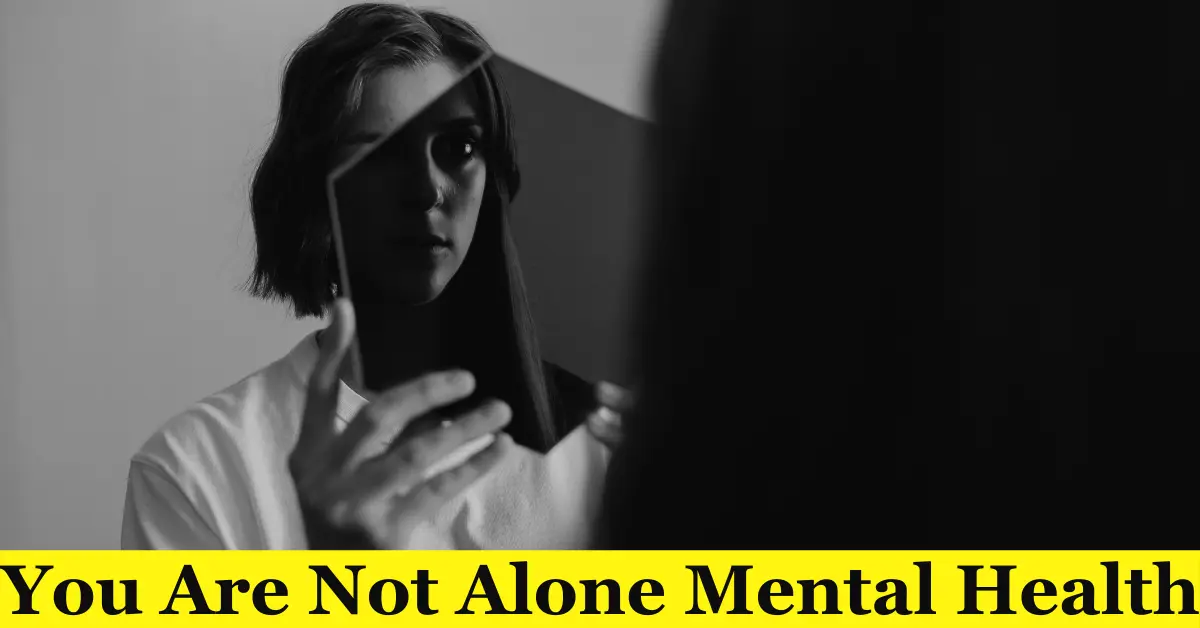Sure, here is a “Blue Valley Behavioral Health” located at 3901 Normal Blvd STE 201, Lincoln, NE 68506, USA.
Opening hours are
- Monday: 9:00 AM – 7:00 PM
- Tuesday: 9:00 AM – 5:00 PM
- Wednesday: 9:00 AM – 5:00 PM
- Thursday: 9:00 AM – 5:00 PM
- Friday: 9:00 AM – 5:00 PM
- Saturday: Closed
- Sunday: Closed
Please let me know if you have any other questions about Blue Valley Behavioral Health.
Who is the largest behavioral health network?
Determining the “largest” behavioral health network can be tricky, as size can be measured in various ways, such as:
- Number of providers: This metric indicates the network’s reach and accessibility.
- Number of patients served: This reflects the network’s impact and service volume.
- Geographic coverage: This shows the network’s spread across different regions.
- Revenue: This highlights the network’s financial strength and capacity.
Considering these factors, here are some of the largest behavioral health networks in the US:
By number of providers:
- LifeStance Health: With over 600 care centers across 34 states, LifeStance boasts a vast network of therapists, psychiatrists, and other mental health professionals.
- LifeStance Health logo
- Acadia Healthcare Company: Operating over 500 facilities in 40 states, Acadia primarily focuses on inpatient and residential treatment for mental health and substance use disorders.
- Acadia Healthcare Company logo
- US HealthVest: This network comprises over 400 facilities offering mental health and substance abuse treatment across 32 states.
- US HealthVest logo
By number of patients served:
- UnitedHealth Group: The nation’s largest health insurer boasts a massive behavioral health network serving millions of members through its contracted providers.
- Cigna: This insurance giant’s Evernorth network covers over 250,000 behavioral health providers nationwide.
- Aetna: With over 250,000 providers in its network, Aetna offers comprehensive behavioral health coverage to its members.
By geographic coverage:
- Optum Behavioral Health: A subsidiary of UnitedHealth Group, Optum has a nationwide network of providers, making it easily accessible across the US.
- Beacon Health Options: Operating in all 50 states, Beacon provides mental health and addiction treatment services to a diverse population.
- Amerigroup: This Medicaid managed care organization has a robust behavioral health network covering all 50 states.
By revenue:
- Acadia Healthcare Company: With annual revenue exceeding $5 billion, Acadia is a major player in the behavioral health industry.
- Universal Health Services: This company operates hospitals and other healthcare facilities, including a significant behavioral health network, generating over $11 billion in revenue annually.
- LifePoint Health: This healthcare system, with over 70 hospitals across 25 states, also has a substantial behavioral health division contributing to its revenue.
It’s important to note that the “largest” network might not be the best fit for your specific needs. Consider factors like location, types of services offered, insurance coverage, and patient reviews when choosing a behavioral health provider.
What do you know about behavioral health?
Behavioral health is a broad term encompassing the complex interplay between your emotions, thoughts, and behaviors that affect your overall well-being. It goes beyond just mental health, also considering:
- Substance use and misuse: How your use of alcohol, drugs, or other substances impacts your mental and physical health.
- Lifestyle habits: The influence of healthy sleep, exercise, and nutrition on your mood and emotional regulation.
- Cognitive patterns: Your thought processes and how they shape your perceptions and choices.
- Stress management: Your ability to cope with challenging situations and emotions in a healthy way.
- Relationships: The quality of your interactions with others and how they affect your well-being.
Here’s what I can tell you about different aspects of behavioral health:
Mental health:
- Common mental health conditions include anxiety, depression, bipolar disorder, post-traumatic stress disorder (PTSD), and eating disorders.
- These conditions can manifest in various ways, affecting mood, cognition, sleep, and functioning in daily life.
- Treatment options include therapy, medication, and lifestyle changes.
Substance use:
- Substance use can include alcohol, drugs, prescription medications, and even everyday items like caffeine.
- Misuse or addiction can lead to various physical and mental health problems, including dependence, impaired judgment, and relationship issues.
- Treatment options may involve detoxification, therapy, support groups, and medication-assisted treatment.
Lifestyle habits:
- Healthy sleep, balanced nutrition, and regular exercise contribute significantly to emotional well-being.
- Poor sleep patterns, unhealthy eating habits, and lack of physical activity can exacerbate mental health conditions and increase stress.
- Adopting healthy lifestyle choices can improve mood, energy levels, and overall well-being.
Cognitive patterns:
- Our thoughts and beliefs can significantly impact our emotional responses and behaviors.
- Negative thought patterns and cognitive distortions can contribute to anxiety, depression, and other mental health challenges.
- Cognitive-behavioral therapy (CBT) can teach you to identify and challenge unhelpful thought patterns and replace them with more realistic and adaptive ones.
Stress management:
- Chronic stress can negatively impact physical and mental health.
- Effective stress management techniques like relaxation exercises, mindfulness practices, and healthy coping mechanisms can improve overall well-being.
Relationships:
- Strong, supportive relationships contribute significantly to mental and emotional health.
- Unhealthy relationships or conflicts can create stress and contribute to mental health challenges.
- Building healthy communication skills and managing expectations can strengthen relationships and support emotional well-being.
It’s important to remember that everyone’s experience with behavioral health is unique. If you’re concerned about your own or someone else’s emotional well-being, seeking professional help from a therapist, counselor, or other qualified mental health professional is crucial.
Remember, I can’t provide individual medical advice, but I can offer information and resources to help you learn more about behavioral health and find support.
Who has the best mental health system in the world?
Determining the “best” mental health system in the world is a complex question, as there’s no single answer that fits everyone due to different priorities and approaches. However, I can share some insights on how countries are performing in terms of mental health systems, based on various factors:
Overall Mental Health:
- World Happiness Report: Ranks Finland #1 for the 5th consecutive year based on factors like social support, income, and healthy life expectancy.
- Mental State of the World Report: Focuses on subjective well-being, suggesting high scores in Latin America, Spain, Africa, and some French-speaking countries.
Accessibility and Resources:
- WHO Project Atlas: Shows variation in accessibility, with higher levels of community care programs in the Americas and Europe.
- Number of mental health professionals: Europe still leads in the number of psychiatrists and nurses per capita.
Funding and Coverage:
- OECD Health at a Glance: Countries like Germany, Switzerland, and Austria allocate high spending on mental health compared to GDP.
- Universal healthcare systems: Countries like Canada and the UK offer broader coverage for mental health services.
Specific Approaches:
- Sweden: Focuses on early intervention, preventive care, and patient-centered treatment.
- Finland: Prioritizes suicide prevention and offers online therapy services.
- Singapore: Emphasizes community outreach and mental health education.
Important Caveats:
- Rankings and reports have limitations, and individual experiences may vary within a country.
- Stigma and cultural factors can influence how people access and utilize services.
- Continual improvement and addressing ongoing challenges is crucial for all systems.
It’s important to research and understand the specific strengths and weaknesses of different systems based on your individual needs and priorities. Seeking professional guidance from mental health professionals is always recommended for navigating challenges and finding the best support available to you.
Who has the best mental health system?
As I mentioned before, it’s difficult to definitively say who has the “best” mental health system in the world. This is because:
- Different needs and priorities: What makes a system “best” depends on individual needs and priorities. Someone concerned about accessibility might prefer a system with readily available resources, while someone seeking specialized care might prioritize availability of specific professionals.
- Varied approaches: Countries prioritize different aspects of mental health, impacting system strengths and weaknesses. Finland excels in accessibility and prevention, while Germany invests heavily in funding.
- Challenges and limitations: Every system faces challenges like stigma, resource limitations, and cultural barriers.
Therefore, instead of trying to crown a single winner, it’s more helpful to consider different strengths across various systems:
Accessibility and resources:
- Europe: Generally leads in accessibility, with higher numbers of mental health professionals per capita.
- Americas: May have higher levels of community care programs.
Funding and coverage:
- Europe: Germany, Switzerland, and Austria dedicate high spending on mental health compared to GDP.
- Universal healthcare systems: Canada and the UK offer broader coverage for services.
Specific approaches:
- Sweden: Focuses on early intervention, prevention, and person-centered treatment.
- Finland: Prioritizes suicide prevention and offers online therapy services.
- Singapore: Emphasizes community outreach and mental health education.
Remember, these are just highlights. Exploring individual countries and their systems based on your needs and priorities is crucial. Resources like the World Health Organization’s Mental Health Atlas and country-specific reports can help you compare and contrast different systems.
Ultimately, the best approach is to seek professional guidance from mental health professionals. They can help you understand your specific needs and navigate the various resources available, regardless of which system you belong to.
What is the difference between mental health and behavioral health?
Mental health and behavioral health are closely related but distinct concepts. Here’s a breakdown of their key differences:
Mental Health:
- Focuses primarily on internal thoughts, feelings, and emotions.
- Encompasses psychological states like anxiety, depression, mood disorders, and personality disorders.
- Can be influenced by biological factors (genetics, brain chemistry), psychological factors (thoughts, beliefs), and social factors (relationships, environment).
- Examples: Feeling anxious in a social situation, experiencing intrusive thoughts, struggling with low mood.
Behavioral Health:
- Focuses on observable behaviors and actions.
- Includes substance abuse, eating disorders, sleep disorders, and self-harm.
- Can be influenced by mental health conditions, but also by social factors, environment, and life experiences.
- Examples: Engaging in drug abuse, displaying compulsive eating patterns, exhibiting self-destructive behaviors.
Here’s an analogy: Think of mental health as the engine of a car, determining the direction and overall function. Behavioral health is like the steering wheel and pedals, translating the engine’s power into observable actions.
Key Differences:
- Focus: Mental health = internal, Behavioral health = external.
- Examples: Mental health = anxiety, depression, Behavioral health = substance abuse, self-harm.
- Influences: Mental health = biological, psychological, social, Behavioral health = social, environmental, life experiences.
Overlap:
- Mental health conditions can influence behaviors, and certain behaviors can impact mental health.
- Many resources and treatment approaches address both mental and behavioral health aspects.
Remember:
- These are general distinctions, and the lines can blur in specific cases.
- Both mental and behavioral health are crucial for overall well-being.
- Seeking professional help is recommended for any concerns about your mental or behavioral health.








